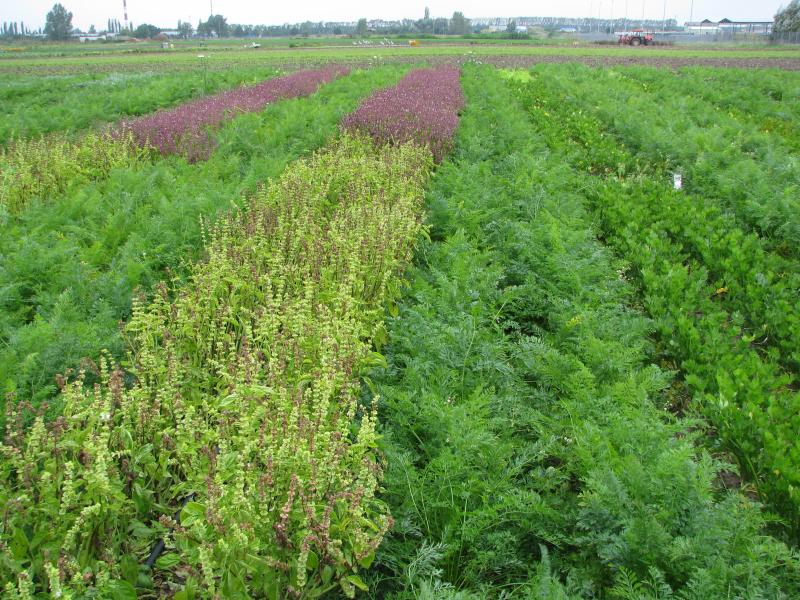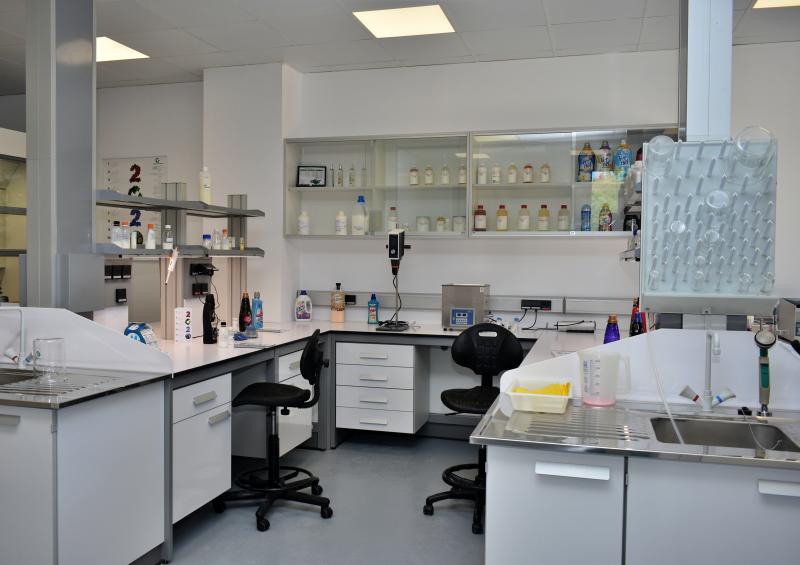Improved bio-inocula and living mulching technologies for integrated management of horticultural crops
ABOUT BioHortiTech
The “green revolution” started seventy years ago and since then has led to a great progress in food production by introducing mineral fertilizers and pesticides into agriculture. However, over time, high impact of these agrochemicals has resulted in the progressive degradation of agro-environment. Today, it appears clear that the chemicals should be limited and replaced with more environmental-friendly practices. BioHortiTech project aims to introduce new technologies in horticulture, based on the application of newly formulated bio-inoculants and living mulching for crop plants benefit in different farming systems. Interdisciplinary research involves international cooperation between experts in the fields of biotechnology, chemistry, microbiology, plant protection and cultivation, in integrated and organic systems.

Source: Magdalena Szczech
The title of the project is “Improved bio-inocula and living mulching technologies for integrated management of horticultural crops”, and its main objectives are: (i) to improve formulation technique and efficiency of bio-inocula; (ii) extending the knowledge on the ecological dynamics of the bio-inocula used with living mulching in integrated and organic farming systems, under contrasting environmental/climatic conditions.
The use of bio-inocula in commercial agriculture and horticulture is hindered by several factors, among them insufficient knowledge of microbial ecology, variable formulation efficiency and farmers awareness of application technology and requirements under different cropping systems. In this project, the multidisciplinary studies will be performed to elucidate how bio-inocula interact with pathogenic, symbiotic and other microbes and to understand how they are influenced by environmental and agronomical conditions. Such knowledge is essential for maximizing effects associated with using beneficial microbes and integrating them with other agronomical practices. The important part of the work is to improve formulation efficiency, an innovative approach based on biodegradable polymers (e.g. cellulose-derivatives) or organic/inorganic hybrid capsule shells derived from underutilized biomasses. They will be used to microencapsulate bio-inocula and bio-effectors (substances promoting plant growth or resilience to biotic or abiotic stresses), contributing to plant protection or nutrition. These new formulations will be characterized by the improved viability of microbial cells and their improved degradation behaviour in soil and plants, as well as the increased efficacy under different conditions.

Source: Albert Puigpinós Colillas
To break the paradigm of monoculture in fruit farming and to foster the concept of increased biodiversity in cropping systems, this project plans to introduce new intercropping strategies using multifunctional living mulching crops in integrated/organic orchards and vegetable crops. The association of bio-inocula with living mulches will be evaluated to obtain synergistic effect of both practices, to maintain soil functions and productivity, and to increase the biodiversity in agro-environment. These are expected to enhance nutrients availability, to reduce soil-borne pests/pathogens and weeds competition, to reduce input of pesticides and mineral fertilizers, and to provide an additional income to farmers.
A mathematical model to predict bio-inocula survival dynamics and subsequent dispersal will be developed and assist growers in optimising application of beneficial microbes for different cropping systems. It is expected that such approach will contribute to securing food production, whilst providing crucial ecosystem services related to climate change mitigation and crop adaptation/resilience.
The multi-stakeholder and multidisciplinary approach implemented by the project, through the participation of research institutions, manufacturers and farmers, is expected to deliver best practices for integrated and organic production systems of fruit and vegetable crops, combining support for biodiversity with value creation. An important part of the project is dedicated to knowledge dissemination to different stakeholders. To achieve this aim, informative tools will be developed so that the results effectively reach farmers, manufacturers, researchers, policy makers and general public.
Dissemination of BioHortiTech results:

Dr. Magdalena Szczech
The National Institute of Horticultural Research (INHORT), POLAND
Email: magdalena.szczech@inhort.pl
Prof. Xiangming Xu
National Institute of Agricultural Botany, East Malling Research (NIAB EMR), UK
Prof. Frederik Wurm and Prof. Katharina Landfester
Max Planck Institute for Polymer Research (MPI-P), GERMANY
Mr. Claude-Eric Parveaud
Research Group for Organic Farming (GRAB), FRANCE
Mr. Albert Puigpinós Colillas
Creaciones Aromáticas Industriales S.A. (CARINSA), SPAIN
Dr. Josep M. Montornés
Eurecat, SPAIN
Project webpage: http://www.inhort.pl/